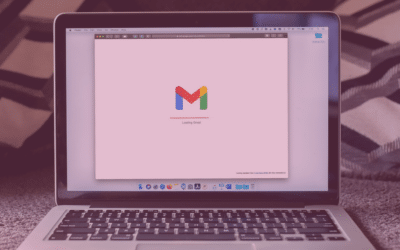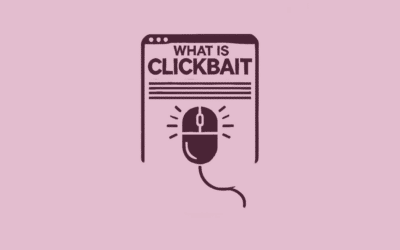We all want a great backlink profile to boost our rankings. And it can be hard to get great backlinks, but when we finally get that one golden link, we kind of want to use it everywhere! But you might want to reign in the enthusiasm a little bit because you don’t want to be using your backlink somewhere it doesn’t fit at all. That’s link spam, and Google penalizes you for it.
So let’s dive into the ins and outs of link spam, all the different types, and how to avoid it entirely!
What Is Link Spam?
Link spam are backlinks created specifically to increase the ranking of a website in the SERP. Usually it means you’re embedding the links you really want to promote where they don’t make sense and are totally out of context with the content of the post.
Any link building that is done to attempt to manipulate Google’s search results is considered spam. Since spam violates Google’s policies, this could lead to your site getting penalized. Nobody wants that. Here’s more information on Google’s spam policy. In general, any of the following is prohibited and will result in your site getting penalized:
- Buying or selling links for ranking purposes
- Excessive link exchanges
- Using automated programs or services to create links to your site
- Requiring a link as part of a terms or service, contract, or similar agreement
- Text advertisements or text links that don’t block ranking credit
- Advertorials or native advertising where payment is received for articles that include links
- Low-quality directory or bookmark site links
- Keyword-rich, hidden, or low-quality links embedded
- Widely distributed links in footers or templates
- Forum comments with optimized links in the post or signature
Essentially, if you’re trying to do something sneaky on your site (very not-white hat, if you would), you’re running a risk of penalties. That includes using your favorite links where they don’t belong.
What Are Different Types of Link Spam?
There are several different types of link spam out there, and you want to avoid all of them. Let’s look at some of the types and what they mean.
Hidden links
Hidden links are when a site hides hyperlinks all across its posts where viewers can’t easily see them. How can they hide them? Easy. They can do this by changing the color of the hyperlink. They can make the link look like regular text. They can even hide a hyperlink in images or in the site code itself. These links can be clicked on, mostly by accident.
Link farms
Cooperation is good except when we’re talking about link farms. This is when two or more site owners cooperate and share links with each other. Together, they harvest links and put multiple backlinks for their site on each other’s pages. Typically, link farmers are not indexed by Google and can be flagged.
No follow links
No follow links can be flagged as link spamming if you have an abundant amount.
Since the Google Penguin update it’s been harder to do this. Penguin looks at all the links on your site and focuses on quality over quantity. But here’s the thing: No follow links have no link juice. Even if they aren’t flagged as spam, they won’t increase your SERP rank. Not worth it!
Single-post blogs
Blogs are a great way to increase your overall site ranking and can be such an asset over time. Content is king! But a single-blog post is when a site owner posts a blog that is just packed with backlinks. It’s all in one post, and it will inevitably improve their backlinks profile—just not in an approved way. You also run a real risk of isolating all of your links and getting none of them clicked on.
Directory spam
In terms of local SEO, listing your business on multiple authoritative directories can improve your search rank. However, the site needs to be authoritative, or it was all or nothing. It does not necessarily matter if your site is valuable; the directory you’re listing it on needs to be valuable or you’re running a risk for link spamming. If you’re listed on lots of RDF Site Summary pages or blog feed directories, this is a red flag for Google.
Article marketing
Article link addiction is very easy for new SEOs to fall into. Let’s avoid the trap here. These articles are often easy and cheap, require no creativity or mental effort, and you’ll see your ranking increase. With this, your pages are strategically placed on the Internet to promote a specific website. You start building low quality links from it. But it’s risky and probably won’t get you where you want to be.
Site-wide links
The Google Penguin update slammed multiple sites with lots of site-wide links. Try to avoid being one of them. Site-wide links are either paid links or Google bombs. This practice is no longer safe and should not be used.
Paid links
There’s no way to detect every paid link. Technically, they can be used, but you’ll need to be careful. If you buy links, make sure everyone involved knows that they’re doing—yes, including the person you’re buying links from.
Link exchanges
Link exchanges require lots of trust because you’re only as strong as your “weakest link.” Likely, if you’re smart enough to not get caught, you could just build or write something on your own which will have a lower risk and likely greater reward. Remember building links ethically will get you so much further.
Press releases should be high quality and convey your brand message. To ensure this, you need to fact-check and have comprehensive editorial guidelines. Low-quality syndication does not check the content, and this leads to links not getting indexed or counted very low on the SERP.
Cleansing domains
Now let’s look at a real “black-hat SEO technique.” The odds of you getting discovered and penalized are high, so it is extremely risky. Definitely not worth it! Also “301” these domains are a type of link manipulation or
Basically, you use “301” redirects, which isn’t natural, to try to manipulate the links.
If it goes undetected, it will not always remain that way; Google Penguin will switch 301 redirects to 404. And it’s super risky!
How to Avoid Link Spam
Links are often seen as “currency” on the internet. That’s why there are so many black-hat SEO tactics. People want to boost their rankings the quick way, instead of the sustainable way. So what should you do instead? Continue to grow and create a strong backlink profile. The more “authoritative” your site is in Google’s eyes, the more likely you will rank in the SERP. You want to have a healthy backlink profile, and that’s really what will help your rankings.
So here are five ways to build a healthy backlink profile, free of link spam:
- Find the right backlinks. Get good backlinks. Do guest posts and editorials. These are legitimate and will give your links more juice anyway. Just make sure to only link them where they fit!
- Data and graphics. Data and graphics are another way you can look to get some great links without having to resort to black hat techniques.
- Content promotion. Promote your content on social media and other places where people will get familiar with your brand.
- Build a network. Build real relationships with people out there. That’s how you’re going to get to write guest posts and get other people to link to you.
- Testimonials. Testimonials are a way for you to get more links on your profile in a healthy way. Plus they help you show your future customers that you know what you’re doing!
How to Recover from Link Spam Penalties
Let’s say you did some type of link spamming… oops. What now? Here are a few tips:
- STOP engaging in link spam entirely. The older the spam posts are, the more likely Google is willing to ignore them.
- Perform an SEO audit. An audit is a great way to understand where you’re getting hit and what is hurting you.
- Learn the difference between link building and link spamming. Learn to really build links. Remember that’s what’s going to improve search ranking, visibility, and site growth.
Conclusion
The good news is that if this all seems overwhelming, BASE Search Marketing is here to help! We perform site audits ourselves to help you see why you might be running into penalties and ranking problems. We also employ a team of top-notch experts at link building to provide you with a great, ethical way to get the links you need to boost your rankings.
Contact us to get started building your backlink profile!



